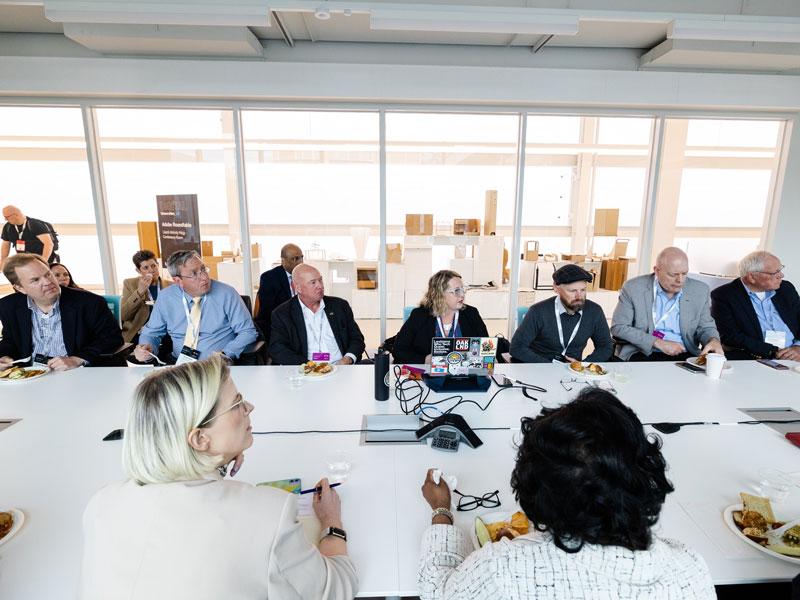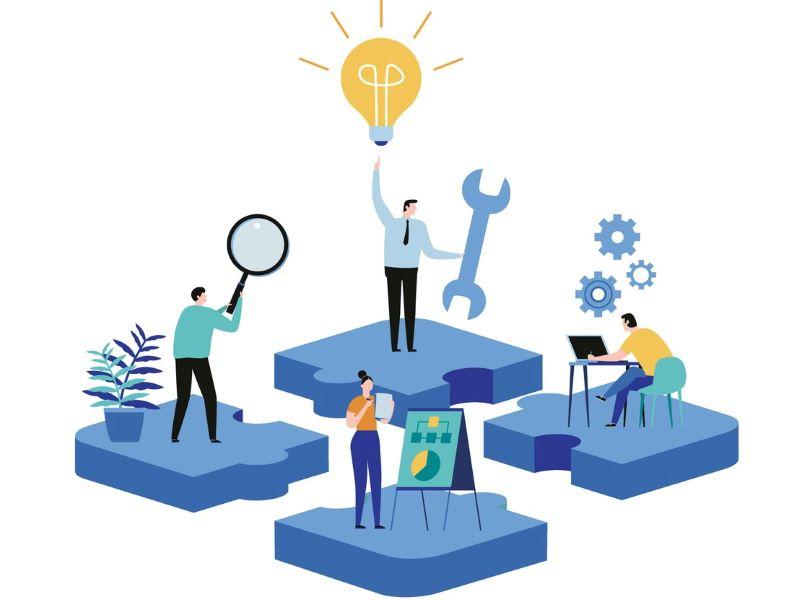In higher education, emphasis is often given to the tangible factors – the rigorous course content, league tables and, in the UK, the Research Excellence Framework and Teaching Excellence Framework scores, the prestige of the institution and the degree itself: all that adorns university brochures and websites.
However, amid the textbooks and lecture halls, a vital aspect can be overlooked – humans. The human interactions that students experience as part of their everyday university lives should not be underestimated in terms of their value and impact. In these moments – in the conversations with lecturers, the collaboration in group projects and the relationships among peers – students cultivate much-needed, and much-sought, interpersonal skills.
These skills can be as essential for success in the professional world of work (and, indeed, life) as the degree itself. They include communication, teamwork, emotional intelligence, adaptability and resilience, each underpinned by the cornerstone skill of personal and professional development: self-reflection. Students need human interaction to acquire and build these skills.
- Resource collection: ‘Power skills’ for 21st-century academia
- Use watch parties to enhance learning and build a sense of belonging online
- Finger on the pulse: establish a culture of communication for better feedback
At a recent student education conference, members of a student panel were asked about the experiences that had made a difference to them during their time at university, and all noted variations of the human interactions they had encountered (apart from the student who referred to the joy when a lecturer brought in their dog). The opportunity to speak to academic staff and peers, even for a few minutes before or after a lecture, was one of the main reasons they gave as motivating them to attend in person. This talks to the wider sector conversation concerning student engagement, belonging and attendance, but we can recognise these instances as also providing discreet skill-building opportunities, as small as they might appear. We must value these unstructured human-centred moments where students can practise and develop dynamic communication skills that will be essential to them in their future workplaces.
Of course, for humans to develop humans, we ourselves need to be appropriately skilled and confident in our abilities before we can develop these in others. Personal tutors need to recognise their pivotal roles, thrive on interacting with and developing students, and be good at it. Institutions need to ensure that those who hold these roles are recruited and trained effectively. Personal tutors need to see meeting and building relationships with their tutees as opportunities to develop communication and rapport, acknowledge adverse events and resulting lessons learned, build resilience and recognise their strengths.
The role of peers should not be overlooked, either. In the human resource management postgraduate programme, the first professional skills workshop in semester one looks to develop teamworking and collaboration skills (and further develop cross-cultural awareness and a global mindset). Using Lego to practise expectation setting, student teams consider what “good” looks like when working as part of a team and the behaviours they expect to see in themselves and others. They then embark on experiential learning in teams throughout the rest of the semester, concluding in an assessed group presentation and individual reflective video.
Pedagogic design here is key. Allowing space in the timetable for students to practise these skills, make mistakes, gain feedback and learn from these experiences is imperative to any skill provision, and a reflective component or assessment allows students to recognise and articulate their skill development. And, of course, these skills are never “done”, ticked off or complete. We aspire to develop students to become lifelong learners who will continue their personal growth throughout and beyond their programmes of study, so a pedagogic approach that insists on self-reflection informed by formative feedback from academic staff and peers better allows students to develop these skills.
The tangible achievements at university, like the international study tours, business competitions and institutional awards, deserve a spotlight. However, these accomplishments are the by-products of the human connections that make them happen. The value of these interactions for students is immeasurable, shaping not only academic success but also character, resilience and the ability to thrive in a collaborative environment. The backbone of a well-rounded university experience, complementing the knowledge gained and providing the glue that holds it all together. As educators, we must recognise and celebrate the intrinsic value of these intangible human interactions, and be confident (at least for now) that this is something we do far better than the AI machines.
Marianne Savory is a senior teaching fellow in professional skills and curriculum development at Leeds University Business School.
If you would like advice and insight from academics and university staff delivered direct to your inbox each week, sign up for the Campus newsletter.




comment